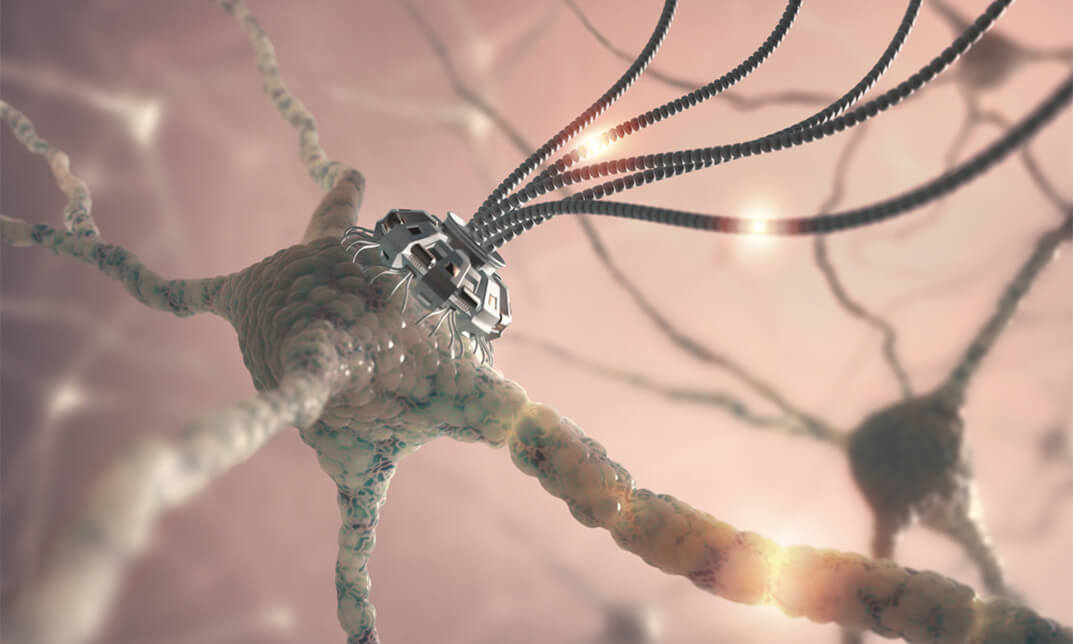You must be logged in to take this course → LOGIN | REGISTER NOW
From touch to pain, how do you think you feel sensation? It’s all the work of nerve. The study of the nervous system is known as Neuroscience. This course will focus on history of Neuroscience at Oxford, the four centuries of discovery, eye movements and cognitive function in Parkinson’s disease; cell transplants to treat the ‘disease’ of chronic pain; detecting, tracking, and predicting motor neuron disease. You will learn to define the genetic architecture of Alzheimer’s disease, Glymphatic System.
Assessment
This course does not involve any written exams. Students need to answer 5 assignment questions to complete the course, the answers will be in the form of written work in pdf or word. Students can write the answers in their own time. Each answer needs to be 200 words (1 Page). Once the answers are submitted, the tutor will check and assess the work.
Certification
Edukite courses are free to study. To successfully complete a course you must submit all the assignment of the course as part of the assessment. Upon successful completion of a course, you can choose to make your achievement formal by obtaining your Certificate at a cost of £49.
Having an Official Edukite Certification is a great way to celebrate and share your success. You can:
- Add the certificate to your CV or resume and brighten up your career
- Show it to prove your success
Course Credit: University of Oxford
Course Curriculum
| Module: 01 | |||
| Protein Misfolding and the Molecular Bases of Alzheimer’s and Parkinson’s Diseases | 01:06:00 | ||
| Imaging and Stimulating Brain Plasticity | 00:49:00 | ||
| Early inflammation and NGF deregulation in Alzheimer’s and Down’s syndrome | 00:43:00 | ||
| Homeostatic regulation of sleep and its regional aspects | 00:45:00 | ||
| Traumatic Brain Disease in the Military: Past, Present and Future | 00:58:00 | ||
| A role for the pulvinar following early life lesions of V1 | 00:43:00 | ||
| Microglial microvesicles in Alzheimer’s Disease | 00:55:00 | ||
| Module: 02 | |||
| Blood based biomarkers and Alzheimer’s; what do we want, when do we want it? | 00:56:00 | ||
| Imaging the mechanisms of behavioural control | 00:50:00 | ||
| The neurobiology of social sounds – from speech to laughter | 00:51:00 | ||
| New frontiers in stem cell neuroscience and drug discovery | 00:48:00 | ||
| Art, Illusions and the Visual Brain | 00:26:00 | ||
| Half a World: What unilateral neglect tells us about space and the brain | 00:17:00 | ||
| The Art of Seeing | 00:11:00 | ||
| Module: 03 | |||
| Post-traumatic stress disorder: studies of flashback memories and their treatment | 00:50:00 | ||
| Genetic dissection of neurodegenerative disease | 00:41:00 | ||
| Microglia, cytokines and synapses in chronic neurodegeneration | 00:43:00 | ||
| Translational neuroscience of the developing cerebral cortex | 00:47:00 | ||
| Rediscovering the importance of sleep, ‘the chief of all earthly blessings’, in the digital age | 01:11:00 | ||
| Modelling Down’s syndrome in mice to learn about Alzheimer’s disease | 00:51:00 | ||
| History of Neuroscience at Oxford: Four Centuries of Discovery | 01:06:00 | ||
| Module: 04 | |||
| History of Primary Lateral Sclerosis (PLS) | 00:19:00 | ||
| What is Primary Lateral Sclerosis (PLS)? | 00:16:00 | ||
| The genetics of primary lateral sclerosis (PLS) | 00:17:00 | ||
| Techniques used to research primary lateral sclerosis (PLS) | 00:17:00 | ||
| Management of primary lateral sclerosis (PLS) symptoms | 00:30:00 | ||
| From touch to pain: making sense of sensation | 00:56:00 | ||
| Human enhancement: the future of neuroscience | 00:52:00 | ||
| Module: 05 | |||
| The tempos of perception in the human brain | 00:59:00 | ||
| How do risk genes for psychosis operate? | 00:46:00 | ||
| Advanced imaging of the spinal cord in multiple sclerosis | 00:45:00 | ||
| The Glymphatic System | 00:53:00 | ||
| Defining the genetic architecture of Alzheimer’s disease | 00:40:00 | ||
| Functional imaging of dyskinesia in Parkinson’s disease | 00:33:00 | ||
| The Visual Brain: ‘The House of Deceits of the Sight’ | 00:50:00 | ||
| Module: 06 | |||
| CNS remyelination: from mechanisms to medicines | 00:48:00 | ||
| Forty years on: from frogs to man | 01:03:00 | ||
| Detecting, tracking, and predicting motor neuron disease | 00:53:00 | ||
| Cell transplants to treat the ‘disease’ of chronic pain | 01:17:00 | ||
| Saturday Scientist, BBC Radio Oxford | 00:02:00 | ||
| Kate Binnie: First and Last Breath soundscape | 00:04:00 | ||
| Eye movements and cognitive function in Parkinson’s disease | 00:44:00 | ||
| Assessment | |||
| Submit Your Assignment | 00:00:00 | ||
| Certification | 00:00:00 | ||
Course Reviews
No Reviews found for this course.






